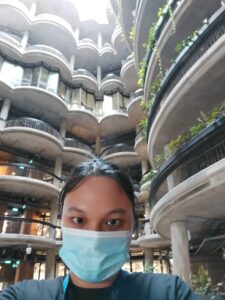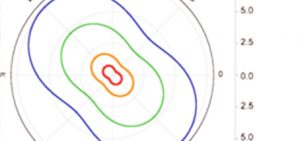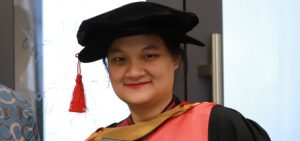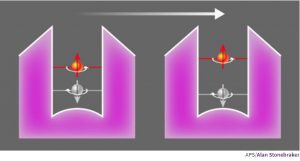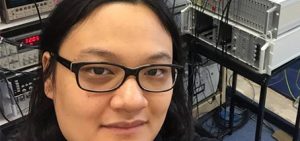- Keep discovering and rediscovering yourself
- Be open to new research and life directions
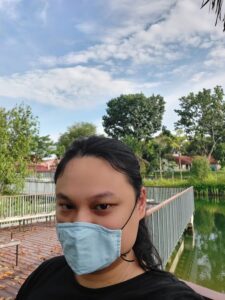
Dr Elizabeth Marcellina is a theoretical and experimental physicist, previously at UNSW and now at NTU, Singapore
Hi, I am Elizabeth Marcellina, and I was previously a FLEET PhD student and then Research Fellow at UNSW with Prof Alex Hamilton and A/Prof Dimitrie Culcer.
My general research directions within FLEET were to harness spin-orbit interactions in semiconductors for spintronics and spin-orbit qubits. To be more specific, I investigated spin-orbit interactions in semiconductor holes, where I identified and isolated different types of spin-orbit interactions.
I have since moved on to Nanyang Technological University (NTU) in Singapore, where I first worked with Prof Xiong Qihua on Moiré excitons and exciton complexes in van-der-Waals materials, and am now working with A/Prof Bent Weber on the optoelectronics of van-der-Waals materials.
Lessons from working at FLEET
What I enjoyed the most about working at FLEET was the opportunity to continually grow, through various workshops, conferences, and the breadth of scope within the research theme.
In my case, I worked on combined theoretical-experimental projects, and from that experience I was not only able to understand the subject matter more comprehensively, but also to learn to ask the right questions…
As a simple example, when I am working on a theory model, I also need to consider the problem from an experimentalist’s perspective – are the model parameters suitable for experiments? Conversely, when I am working on an experimental project, I will revisit the theoretical foundations first and figure out where to look for what features.
The other valuable lesson I learnt from working at FLEET was to think in terms of ‘the big picture’. At FLEET, there was a clear ‘big picture’ research goal to achieve low-energy electronics, and the three platforms (topological materials, exciton superfluids, light-transformed materials) were introduced to pursue that goal.
Sometimes, when doing research, I can find myself too focused on a particular material/platform itself rather than the research framework and the ‘big picture’ goal!
However, the very fact that a research goal may be achievable with different platforms helps me to remember that a particular research methodology may be applicable to different platforms (to various extents).
In fact, it was this awareness that has allowed me to work on different research projects now than what I did at FLEET.
Why I chose physics, and career/life lessons
I chose to study physics at university as I had always been keen on mathematics and physics!
I liked these two subjects the most because they provided (and continue to provide) coherent yet concise ways to explain nature (isn’t it interesting, that in certain cases just a single equation can be applicable/or extrapolated to explain various scenarios – e.g., the Schrödinger equation can be used to describe the energy spectrum of a quantum dot or help us predict molecular bonding!).
Besides work, I find it helpful to have hobbies and other interests. These are good for mental health and to refresh ourselves, which then enhance our working lives.
The key life lessons I have learnt so far are:
- Do not be afraid to try new things. I find that, through trying different things, I know myself better, and I have a better understanding of my own goals.
- Do not be afraid of setbacks. As people say, rejection is redirection. So, it is beneficial to be open to different career/life directions. And…
- Progress is not linear. Repeat 1.) and 2.).
FLEET alumni
 FLEET is developing a skilled workforce of future Australian science leaders. We are extremely proud of those members who have already moved on to great careers, making use of skills developed in their time at FLEET. Ultimately it will be FLEET alums as much as research outputs that define the success of the Centre. Read more alumni news at FLEET.org.au/alumni
FLEET is developing a skilled workforce of future Australian science leaders. We are extremely proud of those members who have already moved on to great careers, making use of skills developed in their time at FLEET. Ultimately it will be FLEET alums as much as research outputs that define the success of the Centre. Read more alumni news at FLEET.org.au/alumni


